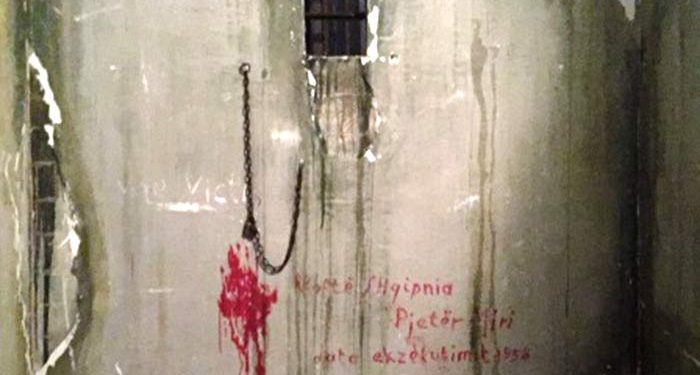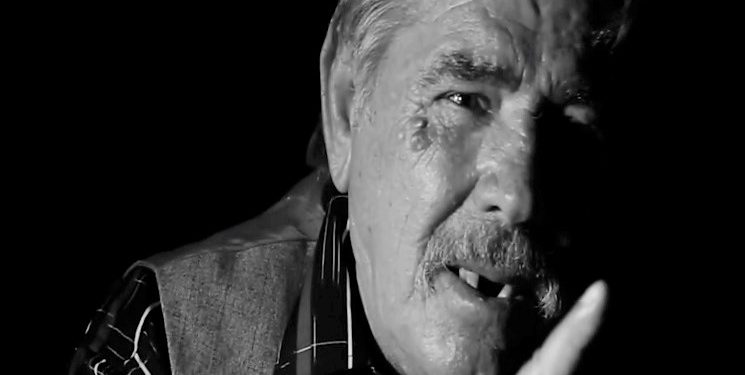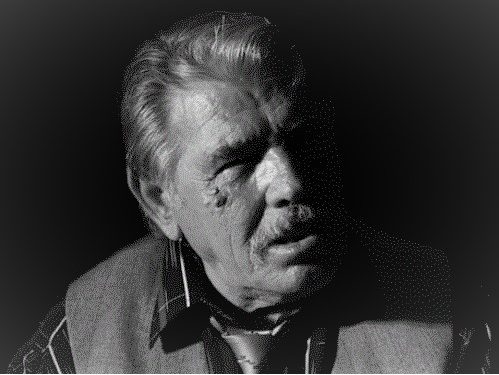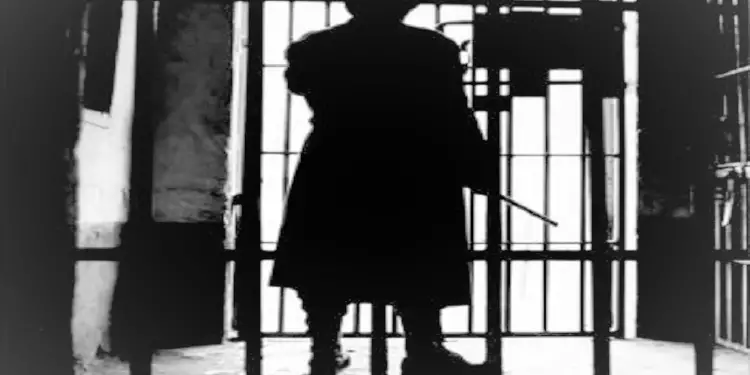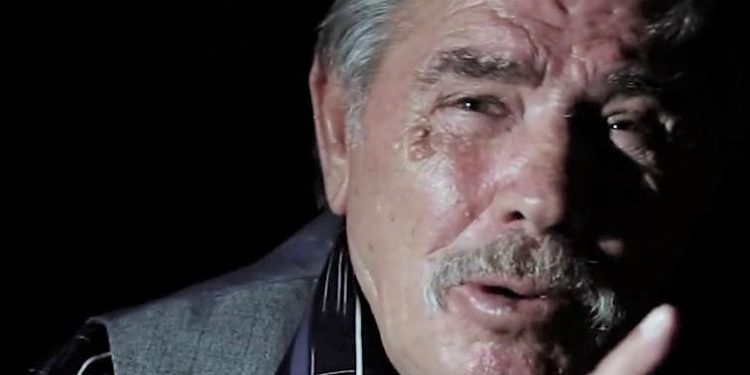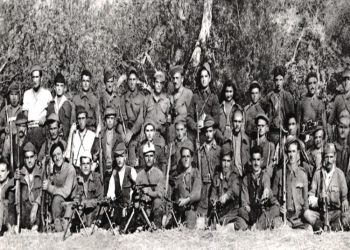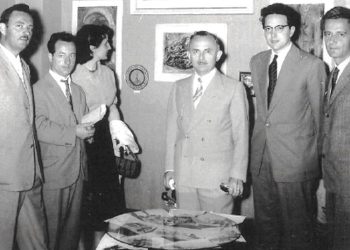– The shocking story of Barjam Njazi Dervishaj, about the inhumane torture in camps and prisons, where some fellow sufferers committed suicide, such as Mustafa Bjaraktari from Tropoja, Lefter Balltovani from the villages of the Greek minority, etc.-
Memorie.al / After a long ordeal of 28 years in prison from 8 different sentences, Barjam Njazi Dervishaj, originally from Tepelena, recounts his life in all the camps and prisons of Albania. “I didn’t have family support, I grew up an orphan but I didn’t suffer much because my friends gave me. When I went to the bed in Burrel’s prison, where it was said “Here they call Burrel where you enter and you don’t leave”, I always found something to eat that my friends had left for me. I have been convicted 8 times, but I still have 15 years of ‘debt’ left to do to communism. There is no prison in Albania where I have not suffered”, he confesses, among other things. The most difficult moments in Burrell prison for Dervishaj were the moments when, while entering the room, he found the lifeless body of his cellmate, hanging with a sheet near the window.
Mr. Dervishaj, what do you remember from the first moments of the arrest?
On May 27, 1960, at the age of 17, for an escape conversation, I was arrested. I went to Përmet with some friends and there I was arrested for trying to escape. They kept me for 20 days in the Internal Branch of Përmet and then took me to Gjirokastra Castle, where I continued the investigation and was sentenced to 10 years in prison for attempted escape.
I was too young to understand why these things were happening to me and after the sentence in Gjirokastra I was sent from there to the prison in Vlora. From the prison of Vlora, they send me to the construction of the Caustic Soda factory, in the surroundings of Vlora. After 6 months, I was sent to Elbasan prison. This is how my life goes, add water and add flour, from 10 years, they took me to 36 years and I stayed in prisons. There is no prison where I have not suffered.
We were sentenced to forced labor and I worked in the gallery of Spaçi, I worked in Ballsh, in the cement factory in Fushë-Kruje, in the cement factory in Elbasan. I went to Spaç in 1971 and after staying for approximately seven months, because of a tiff with the police; I was sentenced there and taken back to Burrel.
How do you remember Burrell prison?
In Burrel it was the worst prison, I have seen from the suffering that human patience was measured, experiments were done with people. In Burrel, I mean like now, if they asked us where we found strength, I would tell you that we found it in our fellow sufferers, there were many people without legs, with both legs amputated or with one leg on crutches, who they procrastinated and did not give in. They taught us that in prisons, you need spiritual strength because communism had no mercy.
When he did not have mercy on these, it did not occur to me to have mercy on the rest of us. When I went to Burrel, I was a 22-year-old boy and physically strong and my fellow sufferers, I say this with pride and I feel satisfaction in my soul, they were all better than me. These have given me strength and life. They gave me their ration of bread. Even today in my house, hundreds of prisoners come and go. I have brothers.
How was a day organized in Burrel?
Man, according to the communists, was an animal. The folded newspaper is 25 centimeters; this was where you should sleep. We were with cement, the rooms with cement. In the morning you would get up when the whistle blew, you would make the bed and you no longer had the right to sit on the bed, but to stay. They gave 500 grams of bread, twice a day, so that if you found a grain of rice or a bean, you would be applauded.
The dungeons were made of cement, where torture took place. Those dungeons had some bars where the mules of the time of Italy were once tied there. They turned it into suffering for the Albanians. In Burrel, I have seen a lot; there I have seen human feeling from the prisoners, one for another.
How many years have you suffered in Burrel?
I spent 7 years in prison in Burrel.
How many people lived in one room?
In a room, according to the people the government put in. The government added that it had no problem. There could be 30 people in a room; there could be 10 people, according to the human capacity that was in the prisons.
How did you take care of your personal needs?
You had toilets with a schedule, there was a cistern inside. You would pour this cup when you went out in the morning. There were old people, sick people. That kind of government didn’t want to know. People were on record even when they died in the galleries they always said they died because of their own fault. This is where the human being was closed.
Did you have free time during the day?
In Burrel, they called the airing yard, “pajdoz”. Going to the toilet twice a day, one hour in the morning and one hour in the afternoon. But always, if the leadership made movements in other cities, these were interrupted, for a month or two, and when we saw the light of the sun, we rubbed our eyes. I and my family do not use these conversations because I know that I am not understood. There was superhuman suffering there.
I have seen my friends who have starved to death. For example, Mustafa Bjaraktari from Tropoja, Lefter Balltovani from the villages of the Greek minority. We were in room no. 1 in Burrel even when we were going out to (pajdos), I say to Mustafa; come on, no; I’m not well, I’ll stay in here. After we did (pajdos) I look at him who was hanging from the prison window with a sheet. I had no intention, not even today, that I would shed tears. What else can I say about these prisons, when the Albanian communists punished innocent Albanians?
I did not find a person who had committed a crime, who would say to me: I have done this, yes everyone, either for escape talks or for escape attempts or for fabricated things. All these people put in prisons and on them an extraordinary violence. When in the prison of Burrel, you read slogans: “Here they say Burrel, where you enter and never come out”, written on the walls. Hundreds of men had died at Burrel.
The Burrel prison was built in such a way that the sun’s rays fell from every side, the rays did not enter. Where there is no sun, there is no life. The rooms had windows but the sun did not enter them. In these rooms, the guards had their men (yes convicts) who tried not to have sawed the windows, put them in to make people sick, put them in the dungeons. They stripped them, leaving them in their underwear and shackles and tied with chains.
I remember one time they had chains on my legs, hands and a chain on my legs and hands tied behind. Potatoes there were called tubers, and at the end of the dungeon, they threw those potatoes at me, I, a hungry young man, crawled up and grabbed a potato with my mouth, just like that, half tied, I was tearing it, only when the counter opens and screams that policeman: what do you do?
That policeman, (now I remember), was from Mallakastra, his name was Qemal Azja, he was very wild, very dirty. Later I met him in the Ballshi camp as a worker. My wife had died there in Burrel prison and I meet her there and I say “Ela Laze”? I was a healthy boy, I was always healthy, and he was afraid and said: I’m sorry. He told me: “I thought that everything that flies is eaten.” You left that conversation without saying anything.
Until 1973, because I want to be completely honest in all points, in Burrel prison, everyone slept on cement. In 1973, they boarded it up, but not the dungeons. There they started giving us some prison clothes, a towel; they also added tea, along with three grams of sugar. I didn’t have family support, I grew up an orphan, but I didn’t suffer much because my friends gave it to me. When I went to bed, I found cookies my friends had given me.
There were times when we became 3-6 friends and shared cigarettes, 5 cigarettes for you, 5 cigarettes for me and said: we will take them to Eid. You had 500 grams of bread, you had an improvised scales, that is, two pieces of boards with triangular twine, here they put 500 grams of stones and here you weighed the bread and the eyes of the prisoners were watching, where it would lean! Communist prisons were very brutal. They have left a mark on us. We were in a place where we were tortured, you can’t forget that.
Our eyes have stripes, they are all recorded, even at night in our sleep when we don’t look at ourselves properly, and we see nightmares. You can’t pass these things off like a piece of bread and cheese. I have seen people, and I myself have been beaten in the most barbaric way, these are not forgotten. The galleries are not forgotten; the broken legs and hands are not forgotten. Praise is to those people and my fellow sufferers, who manage to get through these things as if nothing happened. The communists have wreaked havoc.
We only worked, copper, pyrite, to work in the second area of Spac, to extract pyrite, it was 60 degrees heat in there, and you had to undress. When the drop of acid dripped on the body, the body trembled like a snake. While those gentlemen were warming themselves in a stove outside, even when you went out, they would ask you how many wagons you did, why you didn’t do this, why you didn’t do that, they would tie us up, beat us. What more can I say?! I once thought to myself, if this Enver Hoxha dies, an hour after him I die too.
How do you remember the death of Enver Hoxha, in which prison were you when the dictator died?
When he died, I was in Qafë-Bari and the radio broadcast it in French. To be honest, I didn’t learn any language in the prisons, even when I entered, I was a child and I didn’t know what politics was. A friend tells me: Enver Hoxha is dead. It was a Kudret Hoxha, I went and told him: Enver Hoxha is dead, he pretended not to hear. I told him again: Enver Hoxha is dead. “With all my heart” – he said. I’m telling him. With a serious face, he said that: they will suffocate us.
They blew the whistles and were shouting in the canteen, they had a meeting. It was surprising; there were prisoners who were crying. They were crocodile tears; they cried and stood close to the policemen. There were spies from our hand, complete. A certain Lek Ymeri, a senior officer, had arrived, 500 men entered the canteen. His voice was heard saying: “I see that you are satisfied, you have found out that the leader of the Party and the government has died, but other leaders will emerge from our party.”
They spoke openly to us and told us: “You will not get out of here alive, you will spend 10 years in prison, we will re-sentence you in another 10 years” and that’s how they acted. I have been convicted 8 times. I still have 15 years of “debt” to pay to communism. When I got out of prison, I had no family; I slept under the Executive Committee in Tepelena, where it was raining. I slept there to be sure that they could even kill us because of how they handled things…! I lost no more than 50 kg. from prison.
I was spitting blood even when my wife took me for a visit to the hospital in Berat, they say to the wife: “This, a month or a month and a half, this is not enough anymore”. I looked at the woman crying, but I lived, I didn’t have much problem with life. There, through suffering, I learned not to have a problem. I have a 25-year-old son now, a 22-year-old daughter in university.
We had so many opportunities. I come from suffering and I belong to them. My pleasure is when a fellow prisoner comes to my house. We don’t have the mind to eat and drink; we have the memories of prisons. I am Barjam Njazi Dervishaj, I have suffered 28 years of imprisonment in all the camps and prisons of Albania. /Memorie.al




